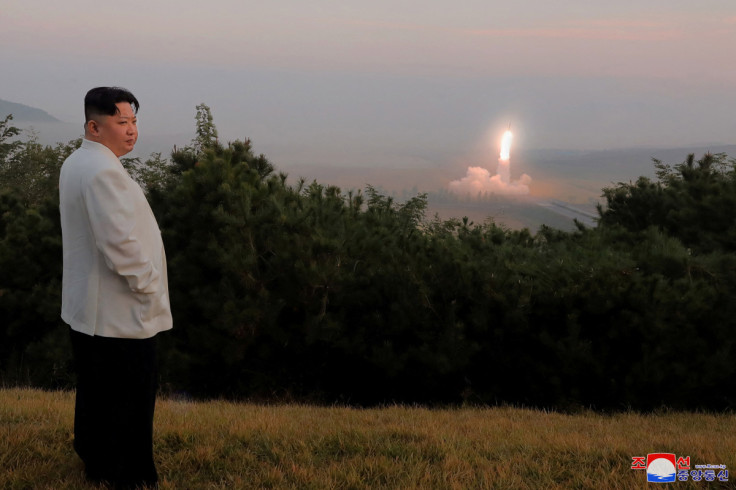North Korea Seeks To Build Nuclear Arsenal Of 300 Weapons, Think Tank Finds
KEY POINTS
- North Korea has produced 4,506 pounds of weapons-grade highly enriched uranium
- Estimates suggest North Korea has a plutonium reserve between 150 and 172 pounds
- Analysis says that Pyongyang could have up to 166 nuclear weapons by 2030
With an estimated 80 to 90 nuclear weapons currently in its possession, North Korea wants to build a nuclear arsenal of 300 weapons, according to a new analysis released on Thursday by a South Korean government think tank.
North Korea has produced 4,506 pounds of weapons-grade highly enriched uranium at its Yongbyon nuclear facility. It is also estimated that the country possesses a plutonium reserve of between 150 and 172 pounds. The combined amount of fissile material that Pyongyang currently holds would yield between 80 and 90 nuclear warheads, said a study by the Seoul-based Korea Institute for Defense Analysis (KIDA) which was reported by United Press International (UPI) on Friday.
If fissile material production continues at current levels, the think tank analysis says that North Korea could have up to 166 nuclear weapons by 2030. Meanwhile, the regime of North Korean leader Kim Jong-un is aiming to grow its overall stockpile to 300 warheads, the KIDA study reportedly finds.
At the year-end meeting of North Korea's ruling Workers' Party, the North Korean leader had called for "an exponential increase" in the country's nuclear weapons in response to what he claims are threats from South Korea and the U.S.
On the final day of a six-day plenary session of his ruling party, Kim called South Korea an "undoubted enemy" and said the U.S. was responsible for increasing pressure on his country to the "maximum" level by frequently sending military assets to the Korean Peninsula.
In response, Kim said that Pyongyang must mass produce tactical nuclear weapons designed for use on the battlefield and at the same time develop a new intercontinental ballistic missile (ICBM) that would give the North a "quick counterstrike capability."
In Sept. 2022, North Korea passed a law enshrining the right to use preemptive nuclear strikes to protect itself. Under the law which was passed by the country's rubber-stamp parliament, Pyongyang said it will carry out a preventive nuclear strike "automatically" and "immediately to destroy hostile forces," when a foreign country poses an imminent threat to the nation and its dictator, Kim Jong-un.
"There is absolutely no such thing as giving up nuclear weapons first, and there is no denuclearization and no negotiation," Kim Jong-un had said in a speech at his country's parliament.
With North Korea's nuclear test site closely monitored by the U.S., South Korea, and Japan, there have been concerns raised that Pyongyang might be all set to conduct its seventh underground nuclear test. North Korea conducted six nuclear tests between 2006 and 2017 at the Punggye-ri nuclear test site.
The last time North Korea tested a nuclear bomb in 2017, it generated a "yield", of between 100–370 kilotons. For context, a 100-kiloton bomb is six times more powerful than the one the US dropped on Hiroshima in 1945.

© Copyright IBTimes 2024. All rights reserved.






















